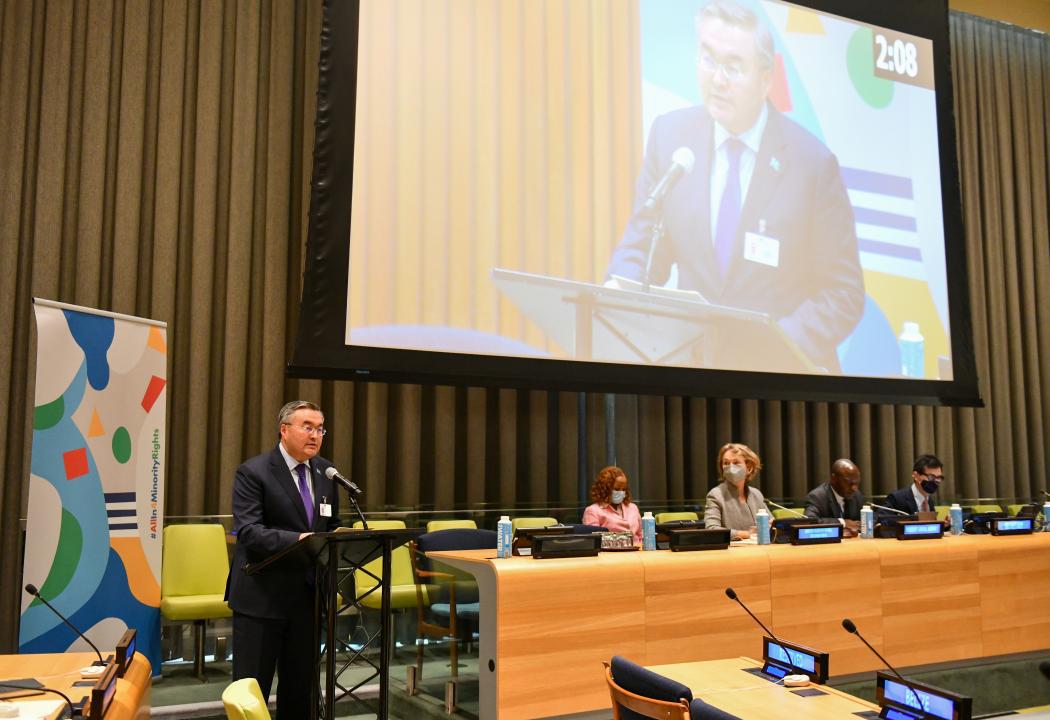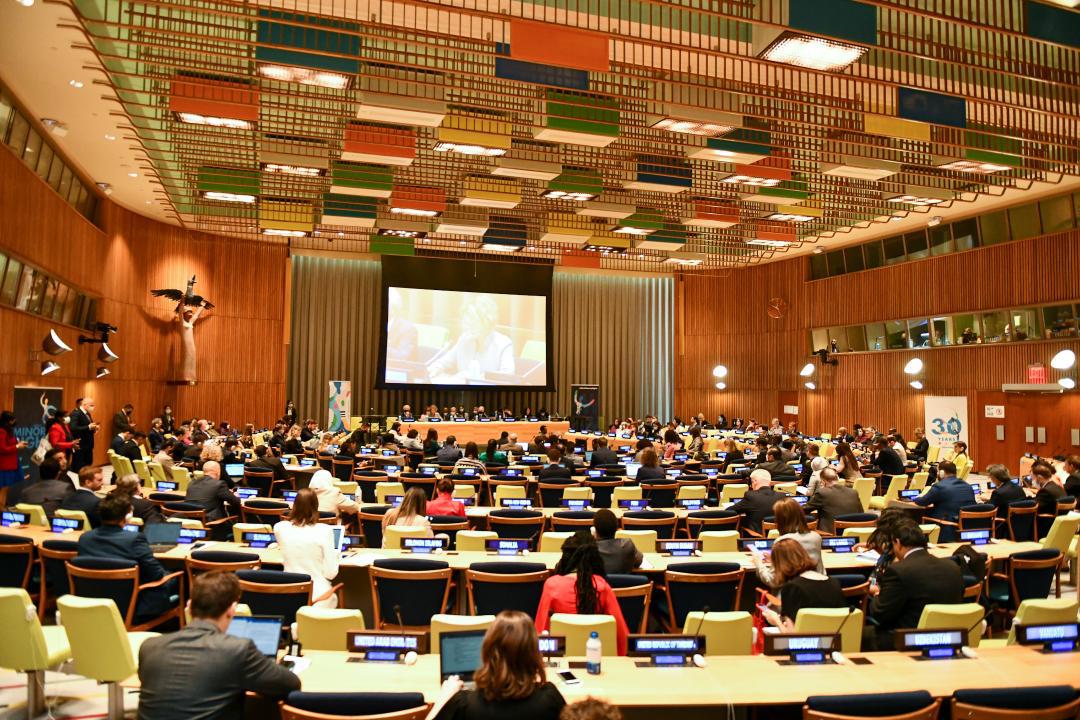ASTANA – With more than 130 ethnic groups and 17 major religious faiths living in peace and harmony, Kazakhstan is deeply committed to providing a better life for every person, said Kazakh Deputy Prime Minister and Minister of Foreign Affairs Mukhtar Tileuberdi at the Sept. 21 high-level meeting on the 30th anniversary of the Declaration on Rights of Persons Belonging to National or Ethnic, Religious and Linguistic Minorities in New York, reported the ministry’s press service on Sept. 22.

Kazakh Deputy Prime Minister and Minister of Foreign Affairs Mukhtar Tileuberdi delivers speech at the high-level meeting on the 30th anniversary of the Declaration on Rights of Persons Belonging to National or Ethnic, Religious and Linguistic Minorities on Sept. 21 in New York. Photo credit: Foreign Ministry’s press service
United Nations (UN) Secretary-General António Guterres, President-Elect of the 77th session of UN General Assembly Csaba Kőrösi, Nobel laureate Nadia Murad, heads of state and government of member countries, and representatives of civil society and academia attended the event.
More than three-quarters of the world’s stateless people are minority groups. The meeting participants noted that national and religious minorities still face forced assimilation, persecution, prejudice, discrimination, stereotyping, violence, and hatred worldwide. According to Guterres, states, which ensure that minorities enjoy the fundamental right to equality, as a rule, develop more successfully.
Tileuberdi also took part in the high-level meeting on Sustainable Mountain Development, convening at the initiative of Kyrgyzstan.
The meeting participants discussed strategies for the conservation of mountain ecosystems, which provide 25 percent of the world’s biodiversity and 60-80 percent of all freshwater, joint measures to reduce the melting of glaciers, and preservation of the mountain ecosystems’ flora and fauna.

United Nations (UN) Secretary-General António Guterres, President-Elect of the 77th session of UN General Assembly Csaba Kőrösi, Nobel laureate Nadia Murad, heads of state and government of member countries, and representatives of civil society and academia attended the event. Photo credit: Foreign Ministry’s press service
Tileuberdi stated that the mass of the glaciers in Central Asia has decreased by 20-30 percent over the past 50 years, and brought up the Tuyuk-Su glacier, the largest of 2,724 glaciers in Kazakhstan, as an example, which annually loses around one million tons of its volume. This harmful process carries significant risks to food, energy, and environmental security. He called for the strengthening of regional cooperation to improve climate change adaptation.
During the meeting with UN Under-Secretary-General for Political and Peacebuilding Affairs Rosemary DiCarlo, Tileuberdi focused on Kazakhstan’s commitment to peace and stability in the region, especially in Afghanistan.
He talked about the country’s previous efforts to ensure the region’s security and stability, including a university program funded by the European Union for Afghan women in Kazakhstan. Back in 2019, the European Union, the United Nations Development Programme (UNDP) and Kazakhstan launched an education program to train and educate several dozen Afghan women in Kazakh universities over the next five years.
The sides addressed urgent issues on the international agenda, including the situation in Central Asia and Afghanistan, as well as the current state and prospects for cooperation between Kazakhstan and the UN.
DiCarlo, in turn, commended economic and humanitarian assistance provided by Kazakhstan to the Afghan people, as well as the decision of President Kassym-Jomart Tokayev to temporarily deploy the personnel of the UN Assistance Mission to Afghanistan (UNAMA) in Almaty in August last year.
Following the meeting, the parties signed an Agreement on the Status of the UN Temporary Remote Office of Afghanistan in Almaty.
